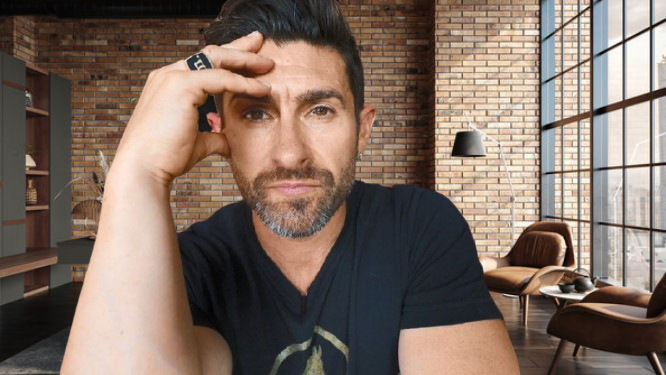
I love conversation, like serious conversations where points go back and forth, but it’s a steeply declining skill. People talk over each other, miss the intention of points made, rarely admit when the other party has a fair take, can’t hold onto an idea and present it later without interrupting, or are unwaveringly biased. Also, people have difficulty detecting others’ non-verbal and verbal cues that specific topics make them uncomfortable, so they keep hammering it.
The internet has contributed to the I ALREADY Know EVERYTHING Worth Knowing syndrome. Sure, a lot of nonsense, conspiracy theories, and hate speech are on the internet, but people act like there’s no way anything they know might be wrong. They feel any new information that doesn’t support their assertions means you’re on the other side, and they won’t listen to your thoughts. This could be about anything from entertainment to politics to toothpaste brands.

When they sense someone challenging their beliefs, they can retreat to their bubble and have everyone there validate them. I have various ‘gray’ opinions, so my thinking is not black-or-white like these people’s. I’d rather debate and converse with a person on whom I agree with nothing than someone who allegedly agrees with me but is arrogantly self-satisfied about it.
Although social skills have been declining for quite some time, COVID has disrupted the ability to be social, and it’s been hard for some to adapt and assimilate back into free-flowing conversational settings. COVID certainly impacted most of us socially to some extent, especially those in childhood and adolescence during that time. Unfortunately, Gen Z’s social skills were lacking before COVID due to the impact of technology and social media access in the tween/teen years. COVID exacerbated the problem.
That said, COVID put everyone’s social skills to the test, and some people crashed. If you had good social skills, you were fine — you just had to work harder to plan meet-ups, and if you talked to friends online, you did that more often. But if you barely spoke to anyone before, COVID worsened the social landscape exponentially. I’ve also noticed ideological polarization become more normalized since COVID.

Social media and dating apps are also to blame. People aren’t forcing themselves to socialize as much, and even when they do, they often retreat back to the safety of the internet afterward. Humans are anxiety-averse, and what we usually force ourselves to do in in-person social interactions, people can take sips on social media where they get just enough—but not enough—to work past anxieties.
Before Gen Z, kids meeting new people face-to-face could be stressful and awkward. If kids from these previous generations didn’t work past that, they’d become stranger averse. After a certain age, that fear would lock in and become part of their personalities. Gen Z and younger aren’t as comfortable talking to strangers as previous generations because of a lack of exposure to social media, dating apps, and COVID-19.
In the world of technology, people have lost the ability to speak clearly and concisely. However, over the years, I have learned some tricks and secrets I want to share to be a communication god. Even if you’re not a great communicator, you can develop your communication skills to have an advantage over 99% of most people who never learn.

A lot of us don’t feel confident when we communicate because we have a mental block. We’re worried we’ll sound stupid or don’t know enough to share our thoughts. We’re concerned about being judged, so we don’t let go. Educate yourself on a specific topic to let the flow go during a conversation. Jordan Peterson is a fantastic speaker who commands a room. He’s eloquent, never missteps, and doesn’t use filler words — he is a powerhouse for communication. He says you should know a lot so you don’t have to think about talking points or a script when talking.
If you’re shallow or not deep in knowledge, you will try to remember facts and details. If somebody asks you questions or you get thrown off track, you could lose your mind and stammer and stutter using filler words. It’s easier to talk about what you’re passionate about, whether it’s guitar, video games, or business. You can fire off without having to think. It will just flow. The more you learn about things, the more it will facilitate better conversations. You’ll have confidence in interactions.
Reading will help you communicate better because you will learn more and improve your vocabulary. I do a lot more writing than reading. Write down your thoughts, to-do list, and journal entries. It’s an incredible way to communicate better because you’re more in touch with your feelings and thoughts.

Many fathers teach being stoic and not sharing or showing emotions. Mothers can force you to communicate, not shut down, express yourself, and freely talk. I can share how I’m feeling and express my emotions because my mother encouraged me to do so. You’ll get more comfortable speaking when you are in touch with your feelings because you’re not held down by fear and anxiety.
Do the deep work to analyze why you feel insecure or are prevented from having free-flow conversations. When you’re around friends, you probably have an easy time conversing. It flows, and you can cut up. You’re not as vibrant or jovial when you go around different people, whether a work function or higher class people. You’re not as engaging because of fear. Perhaps the issue is fear of being judged or an awkward situation — regardless, analyze and understand what’s going on so you can reduce the anxiety.
Engage people and ask questions. Give compliments, making you a better communicator and making conversations easier. Film yourself speaking and having conversations. You can watch it back, notice your body language, and then train yourself not to use bad behaviors such as filler words, poor eye contact, and stiff body language.

Filler words kill the flow and make you appear unsure of what you’re saying. Ask those around you what filler words you’re using. Also, film yourself and assess what you hear. You can break the habit by pausing, catching your breath, and mentally thinking about your following words. Pausing will give you time to allow your brain to catch up to your mouth and then draw people in. Pausing is an incredible trick for building engagement, interest, and connection with people.
Every day, initiate three conversations with people you don’t know. This could be at the gym, coffee shop, work, or wherever. Initiate the conversation and keep it going for two minutes, which can seem like an eternity. Go deeper than small talk by asking questions about them and sharing things about yourself. Work that muscle because the more you practice, the better you’ll get.
In an age where everybody is communicating via technology, which includes texting and emailing, you still must be able to speak to get your point across. You must be able to engage to get a job, a girlfriend, a career, and more. When you become a better communicator, you can make more friends, date better people, and have more opportunities — a richer, fuller, and more prosperous life!












